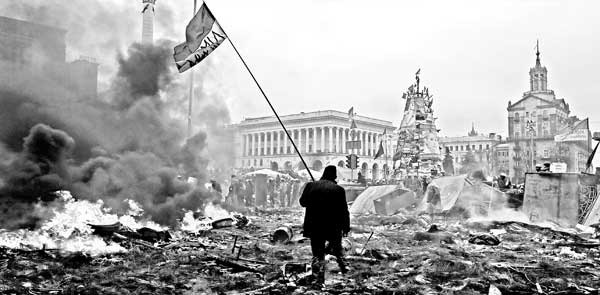Reply To:
Name - Reply Comment
Last Updated : 2024-04-26 05:10:00
.jpg) Who said the Cold War is over? Look at the crisis in Ukraine. It indicates that the Cold War embers are still smouldering, though they are unlikely to engulf the whole world as a major fire, as had been the case prior to 1991 for some four decades, during which the nuclear clock had been often set at five-minutes to zero hour, or even less than that.
Who said the Cold War is over? Look at the crisis in Ukraine. It indicates that the Cold War embers are still smouldering, though they are unlikely to engulf the whole world as a major fire, as had been the case prior to 1991 for some four decades, during which the nuclear clock had been often set at five-minutes to zero hour, or even less than that. The growing crisis in Ukraine, which shares a border of more than 2,000 km with Russia, is not without the overtones of the new version of the Cold War.
The growing crisis in Ukraine, which shares a border of more than 2,000 km with Russia, is not without the overtones of the new version of the Cold War. .jpg)


Add comment
Comments will be edited (grammar, spelling and slang) and authorized at the discretion of Daily Mirror online. The website also has the right not to publish selected comments.
Reply To:
Name - Reply Comment
US authorities are currently reviewing the manifest of every cargo aboard MV
On March 26, a couple arriving from Thailand was arrested with 88 live animal
According to villagers from Naula-Moragolla out of 105 families 80 can afford
Is the situation in Sri Lanka so grim that locals harbour hope that they coul